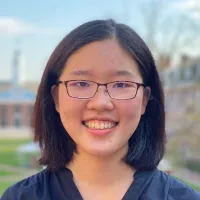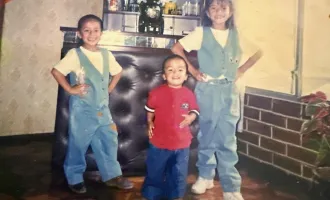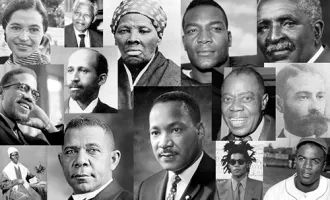
Photo by Swarnavo Chakrabarti on Unsplash
Seeking Vaccine Equity
Since the start of the novel COVID-19 coronavirus, billions of lives globally have been irreversibly changed.
Public health safety measures and vaccines were thrusted into the limelight, yet little has been said about stark disparities in access to vaccine technology and other therapeutics between the Global North and South, especially in the First World country narrative.
From Sept. 28 to Oct. 5, the Science Policy Group (SPG) at UCSF made that the central topic of their inaugural “Vaccine Equity Series” titled “Could you patent the sun?”
Over the course of three dialogues spanning both UCSF Mission Bay and Parnassus campuses, three distinguished speakers appeared online and in-person to speak about their passion – vaccine equity and advocacy.
The event was spearheaded by members of SPG, Caroline Devany and Daniel Karmelic, a UCSF School of Nursing student and postdoctoral fellow respectively.
“I became interested in questions of systemic vaccine equity during the time in the pandemic we were hearing a lot of discourse around anti-vaxxers,” Devany told Synapse.
She said few people appeared to be talking about how the patenting of mRNA vaccines could pose a larger barrier to the pandemic’s resolution than the decisions of any individual. So they resolved to bring that discussion to campus.
“We sought to bring together a cross-disciplinary group of experts with decolonial perspectives in global health,” Devany said. “We chose speakers whom we felt brought critical analyses to vaccine rollout during the pandemic, and who could inspire us on how to move forward.”
Karmelic said speakers of the series were inspired by something they saw on TV.
“Caroline and I saw them on the PBS news program Democracy Now. As I come from a smaller country, it was striking how I could email the world experts in a field and get a positive response right away.”
Among them was Achal Prabhala, public health activist based in South Africa and coordinator of the AccessIBSA project. Prabhala told the audience that the newly formulated Pfizer and Moderna bivalent vaccines currently being rolled out in the US gives Americans a vast health advantage over citizens of his home country of India.
“A five-year-old today living in the United States will very soon have access to […] better vaccines, mRNA vaccines, than my eighty-nine-year-old father here will ever have,” Prabhala said .
He added that the problem isn’t simply that a bivalent omicron booster isn’t available in India today, “it’s that we have no prospects anywhere in the future of getting that bivalent booster.”
Prabhala cited moments in history where life-saving treatments or drugs for debilitating diseases such as AIDs, myeloid leukemia, and Hepatitis C were withheld for years from the Global South. The reason? Pharmaceutical companies placing exorbitant prices on these medical treatments.
“When I started working on medicine monopolies, it was almost given that the people affected by them […] were Brown and Black, who lived in Brown and Black countries.” Prabhala said. “It's certainly possible that we could have avoided Omicron in December had we done the right thing right from the start in 2021.”
He said it will take a lot of public awareness and moral outrage to change the status quo.
Dr. Maria Elena Botazzi, Associate Dean of the National School of Tropical Medicine at Baylor College of Medicine, led a team that designed the open source COVID-10 vaccine, Corbevax.
Botazzi said the key is connecting entrepreneurship and science.
“If we are really going to be successful developing interventions for these neglected and emerging infectious diseases, you need to do it in partnership,” she said. “This concept of product development partnership brings different expertise from different sectors, private for-profit, nonprofit pharmaceutical, academic together to be able to bring advances from the bench all the way beyond the clinic.”
Bottazzi formed a product development partnership with her colleague at Baylor College of Medicine, Dr. Peter Hotez, to develop technologies for neglected tropical diseases often afflicting the Global South.
While keeping open science at its center, the duo navigated the multi-step process of translating academic science to impactful products targeted at global health problems.
The result? An open-source, low-cost COVID-19 vaccine Corbevax in collaboration with Developing Countries Vaccine Manufacturers Network.
“You know, the true sense of decolonizing science is that we don't just dictate or come with a solution and hand it off, but rather have every party sitting at the table,” she said.
Dr. Monica Gandhi, an infectious diseases doctor and Professor of Medicine, Associate Chief in the Division of HIV, Infectious Diseases, and Global Medicine at UCSF, said there was a stark inequity of treatment during the HIV epidemic as well.
“HIV has always had a movement towards activism, and it totally changed the world,” she said.
Parallels between access to HIV treatment and COVID-19 vaccines highlight the susceptibility of vulnerable populations to spread of diseases at this scale.
Gandhi then touched on current COVID-19 vaccines.
“Why do we need these vaccines, if we've seen so much infection around the world?” she asked the audience.
The reason was hybrid immunity - a combination of having had the vaccine and infection.
“There were high rates of hospitalizations in the Omicron surge among the unvaccinated in the United States if you were still unvaccinated with that degree of transmissibility,” she said.
On top of this, there is a global failure to distribute antiretroviral therapy and monkeypox vaccines to populations who need them.
“We’re not changing, we’re not learning [...] and we will need, through your advocacy, global vaccine and therapeutic access,” Gandhi said.
In providing context for global healthcare inequities, the discussions inspired some attendees to work towards progress.
“It was eye-opening to walk through the history of previous epidemics and the changes in patent laws to understand how we shaped the landscape of the Covid-19 pandemic,” said Sneha Rao, SPG member and graduate student. “I learned what steps I can take as a scientist and an advocate to improve the equity of global vaccine distribution moving forward.”
Student organizers Devany and Karmelic said they were overjoyed with the event.
“We were amazed that all the speakers we reached out to enthusiastically responded to our invitations to speak,” Devany said.
“Our goal was to push ourselves to try something new together, that was calling to both of us, even if we didn’t end up with the most polished product. We relied heavily on the hosting experience of our fellow SPG members to pull it all together and are so grateful for the team effort.”



